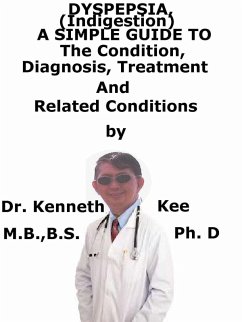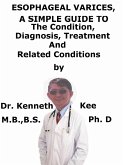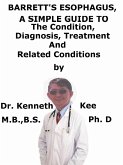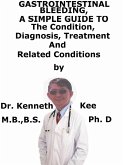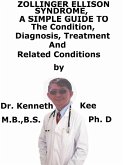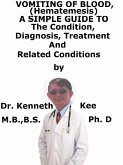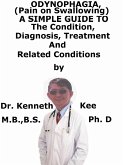Dyspepsia (Indigestion) is a sensation of discomfort in the upper belly or abdomen during or right after eating often accompanied by heartburn, nausea, regurgitation and flatulence.
Dyspepsia normally happens when people eat too much, too fast, or eats foods that do not agree with them.
Most patients with recurring dyspepsia are caused by:
1. Non-ulcer dyspepsia
Other causes for dyspepsia such as duodenal or stomach ulcer, acid reflux, inflamed esophagus (esophagitis), gastritis, etc have been excluded..
The inside of the gastrointestinal tract appears normal.
It is the most common form of dyspepsia.
The cause is not obvious, although infection with a bacterium (germ) called Helicobacter pylori (commonly just called H.pylori) may be responsible.
2. Duodenal and stomach (gastric) ulcers
Peptic ulcer disease is a hole in the innermost layer of the wall of the stomach or of the duodenum (the first part of the small intestine connected to the stomach).
Too much production and escape of the acidic gastric juice can cause burns into the protective lining of the stomach and induce inflammation of the underlying stomach tissue.
An ulcer is where the lining of the gastrointestinal tract is injured and the underlying tissue is exposed.
The causes of excess production of gastric acid are:
a. Most common is stress and anxiety that automatically raise the production of the acid as a result of sympathetic nervous response.
b. Hereditary- some gastric patient has a family history of gastric problem.
c. Irregular meals tend to produce more acidic gastric juice to form at regular meal time.
d. Alcohol and smoking has been linked with higher acid formation
e. Drugs:
Aspirin and other painkillers belonging to the non-steroidal anti-inflammatory drugs (NSAID) tends to irritate the stomach inner lining
Dyspepsia may be activated by:
1. Drinking too much alcohol
2. Eating spicy, fatty, or greasy foods
3. Eating too much (overeating)
4. Eating too fast
5. Emotional stress or nervousness
6. High-fiber foods
7. Tobacco smoking
8. Too much caffeine
Dyspepsia may be diagnosed through one or more medical tests:
1. Upper gastrointestinal endoscopy.
2. Urea breath test can also detect whether the patient have H.pylori infection
Treatment:
1. Altering the way the patient eat (too fast or too much) may reduce the symptoms.
2. Permit enough time for meals.
3. Chew food carefully and completely.
4. Avoid quarrels during meals.
5. Avoid over-excitement or exercise right after a meal.
6. A calm environment and rest may help improve stress-related indigestion.
7. Avoid aspirin and other NSAIDs.
If the patient must take them, he or she must take them on a full stomach.
B. Medications
1. Medications the patient can buy without a prescription such as ranitidine (Zantac) and omeprazole (Prilosec OTC) can relieve symptoms.
2. Antacids will neutralize the stomach acid and help reduce symptoms and improve healing.
Stomach acid causes irritation of the inflamed tissue in the stomach.
3. If the ulcer is induced by aspirin or NSAID's, the doctor would definitely ask the patient to stop these medicines and the patient would be given acid reducing medicines (omeprazole, lansoprazole, cimetidine, famotidine, ranitidine,) which reduce acid productions and increase ulcer healing process.
4. If the ulcer is induced by Helicobacter pylori, the doctor would give triple therapy (three drugs) to kill the bacteria.
TABLE OF CONTENT
Introduction
Chapter 1 Dyspepsia (Indigestion)
Chapter 2 Causes
Chapter 3 Symptoms
Chapter 4 Diagnosis
Chapter 5 Treatment
Chapter 6 Prognosis
Chapter 7 Digestive Process
Chapter 8 Digestive Diseases
Epilogue
Dieser Download kann aus rechtlichen Gründen nur mit Rechnungsadresse in A, B, CY, CZ, D, DK, EW, E, FIN, F, GR, H, IRL, I, LT, L, LR, M, NL, PL, P, R, S, SLO, SK ausgeliefert werden.

